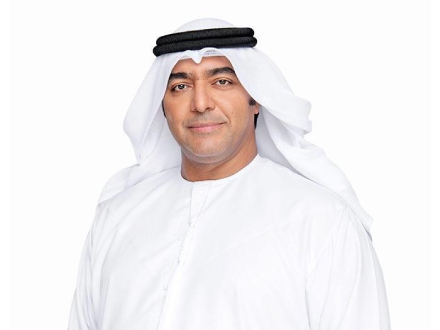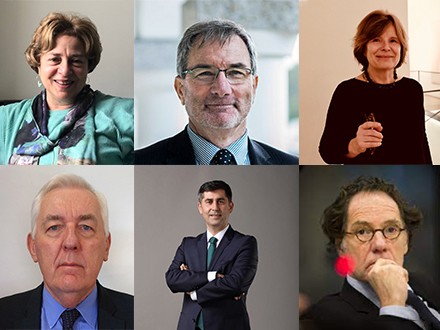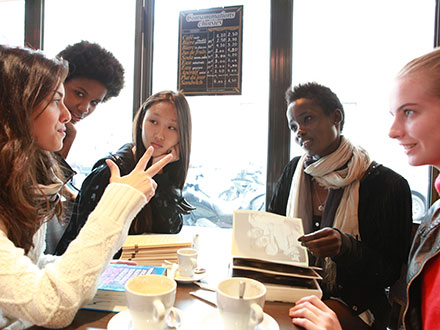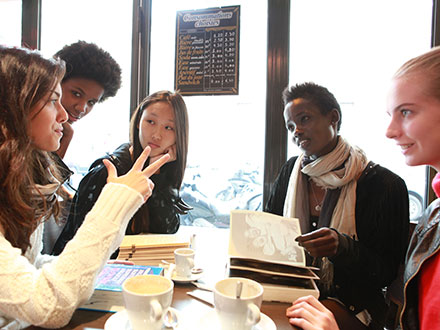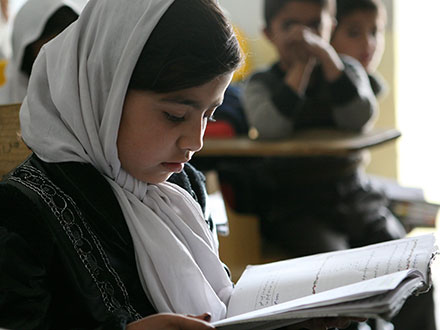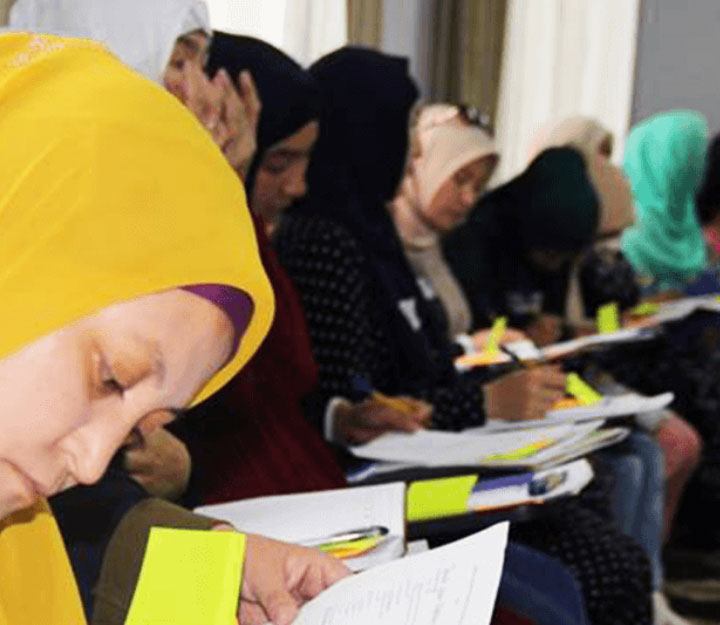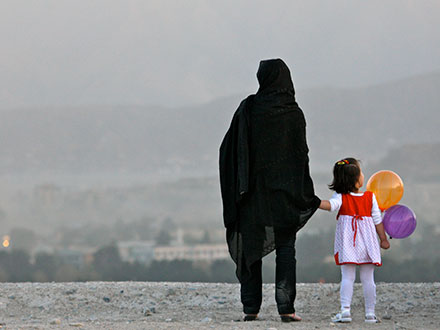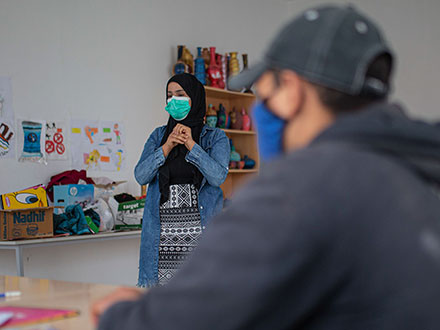On 10 June 2014, Hedayah co-organized its first official side event to the Fourth Review of the United Nations Global Counter Terrorism Strategy. The side event was hosted by the Dutch Permanent Mission to the United Nations and organized by the Human Security Collective (HSC) in collaboration with West African Network for Peacebuilding (WANEP), Hedayah,
International Centre for Counterterrorism (ICCT), Cordaid and the United Network of Young Peace builders (UNOY) in New York City.
The side event panels presented a number of practices and reflections on the relationship between security and development sectors and how these relationships can support and reinforce countering violent extremism (CVE).
The panels of the side event focused on pillar 1 of the Global Counter-Terrorism Strategy, which calls for addressing the conditions conducive to the spread of terrorism. Pillar 1 enumerates several such conditions, including: “Prolonged unresolved conflicts, dehumanization of victims of terrorism in all its forms and manifestations, lack of the rule of law and violations of human rights, ethnic, national and religious discrimination, political exclusion, socio-economic marginalization and lack of good governance.”
The overarching theme of the panels was to promote a multi-stakeholder approach to prevent and mitigate violent extremism by strengthening the relationship between security and development sectors. Four panels were held in order to illustrate this: 1) A human security approach to countering violent extremism in Mali, 2) Facilitating intra and inter-faith dialogue to prevent and counter violent extremism, 3) Reintegrating violent extremist offenders: a role for governments and communities, and 4) The role of young community leaders n fostering resilient communities.
Panel 1: Civil society engagement and a human security approach on countering violent extremism in Mali
The morning panel at the Dutch Permanent Mission to the United Nations began with a panel on civil society engagement with a specific focus on the case study of Mali and was moderated by the Human Security Collective (HSC). The panel discussions focused on the role of both the government and civil society in addressing violent extremism in Mali. This included the reconciliation, transitional justice processes, development, human rights and conflict prevention. The government representatives discussed their current strategies for combating terrorism, including a July 2008 law against terrorism and their implementation strategies for prevention.
The panel also addressed areas in which civil society can engage and take an active role to preventing violent extremism, including the role of youth, women and religious leaders. Panelists also focused on the role of interfaith dialogue in the Malian context, and shared their successes and failures. Moreover, the panelists shared their thoughts on the implementation of the UN Global Counter Terrorism Strategy (GCTS) through practices from the Malian context.
The panel on Mali was made possible through the Austrian Development Agency (ADA), the operational unit of Austrian Development Cooperation, with support from their funded project: Civil Society for a Human Security Strategy in Mali. This project is an initiative of the West Africa Network for Peacebuilding (WANEP), the Global Partnership for the Prevention of Armed Conflict (GPPAC), and the Human Security Collective (HSC), who hosted this panel.
Panel 2: Facilitating intra and interfaith dialogue to prevent and counter violent extremism
The second part of the morning discussions at the Dutch Permanent mission included a panel addressing the potentials and pitfalls of intra and inter-faith dialogue in relation to preventing and mitigating extreme violence and terrorism. Hedayah moderated this session and co-organized and co-hosted the session with the Human Security Collective.
A number of issues were discussed by the panelists, including whether this type of dialogue is effective in addressing recruitment and radicalization that leads to violent extremism, and what are the risk involved in intra and interfaith dialogue when addressing extreme violence.
The panelists shared their personal experience in working on the ground on intra and interfaith dialogue in three contexts: Kenya, Nigeria and Northern Ireland. They identified the successes and failures in their own programs, the methods they used to carry out their programs, and the challenges they faced in supporting intra and interfaith dialogue to counter violent extremism. Panelists also reflected on the role of international development to support inter-faith dialogue to strengthen community resilience against extreme violence.
Panel 3: Reintegrating Violent Extremist Offenders: A Role for Governments and Communities
The first afternoon panel, hosted by the International Centre for Counter Terrorism-The Hague (ICCT), opened with remarks from H.E. Mr. Karel van Oosterom, Permanent Representative of The Netherlands to the United Nations in the UN Secretariat Building and discussed the role of governments and communities in reintegrating violent extremist offenders.
The panel discussion examined concrete governmental and community efforts to facilitate the successful reintegration of violent extremist offenders after release. As reintegration and aftercare are vital components of the overall rehabilitation process, investments and interventions made during incarceration to prepare offenders for reinsertion in society are likely to have diminished effect when not accompanied by appropriate guidance and aftercare during the reintegration phase. The panel presented examples of reintegration and aftercare programs in a number of countries around the world, emphasizing the importance of ensuring security whilst also offering room for development, the need for effective cooperation among different actors, and the vital role that the community plays in reintegration.
Panel 4: The Role of Youth Leaders in Fostering Community Resilient Communities
The second afternoon panel, moderated by the International Centre for Counter-terrorism- The Hague (ICCT), held also in the UN Secretariat building, focused on highlighting the role youth leaders play in helping foster resilient communities by sharing programs and best practices from Kenya, Pakistan and the MENA region. The panel was co hosted and co-organized by Hedayah, The Human Security Collective (HSC), United Network of Young Peacebuilders ( UNOY) and Cordaid.
The panel, consisting of five youth leaders from Pakistan, Iraq, Libya, Kenya and Palestine, encouraged interactive debates with the audience on the relation between security and development and the role that youth leaders play in fostering community resilience against violent extremism. The youth leaders presented their experiences and perspectives for how the security and international development sectors can work together to develop programs and policies that are inclusive of youth leaders and also discuss ways in which the voices and expertise of youth can be used to build resilience against violence in their communities.

